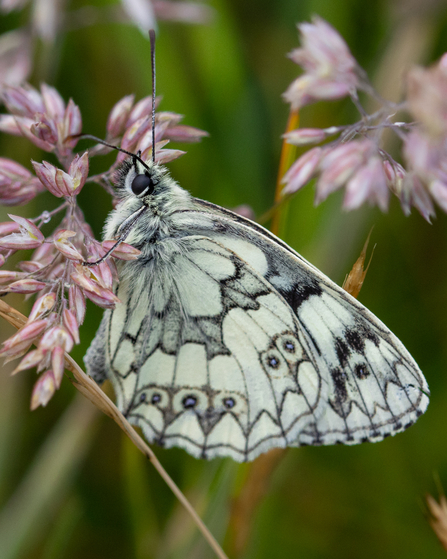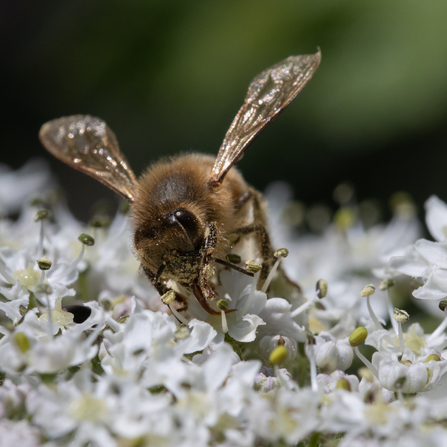What is an insect? An insect is one of the most common types of invertebrate (an animal without a backbone). They have six legs, antennae and a body divided into three segments called a head, thorax and abdomen. This segmented body is covered in a hard outer casing called an exoskeleton (a skeleton but on the outside of their body). Globally over 1 million species of insect have been described but some estimates think there might be as many as 10 million in total. Across all these species, scientists think there could be over 1.4 million billion insects alive right now! This would mean that insects outnumber humans 200 million to one!

(c) George Cook
Without all these millions and millions of Insects, the world would be a very different place. Firstly, without their pollination services, the amount of food available for us to eat would drastically reduce. Insects such as moths, butterflies, bees and flies pollinate crops worth an estimated £690 million in the UK annually. Without insects we might have to go without some of our favourite foods, coffee, chocolate and cider! Waste materials such as fallen leaves and cow pats would pile up without insects breaking these materials down. The variety of life on earth would also suffer as so many different species rely on insect for food including birds, bats, frogs and so many others.
It is therefore scary to consider that so many of these vital animals are now so at risk of extinction. 41% of insect species face extinction. Habitat loss, pesticide use and the intensification of farming practices are some of the reasons for their worrying decline. But there is hope and we can all do things to help our 6 legged friends.
The easiest thing to do is to stop using pesticides wherever possible. Pesticides are chemicals designed to kill insects but they cannot tell the difference between an insect that might be acting as a pest and a beneficial insect. They will therefore kill insects of all sorts even those that might benefit your crops or garden.
Leaving areas of your garden to grow long and wild will provide food and shelter for insects. As well as helping insects, not mowing will help your lawn and garden handle the drought and warm weather we have been experiencing lately.
Planting pollinator friendly plants such as native wildflowers will also help provide food and shelter for insects. Visit our wildflower nursery at Grow Wilder for a wide selection of pesticide free wildflowers that you can buy.
Finally, one of the best things you could do to help insects and wildlife is to put a pond into your garden. It doesn’t have to be a large one, just putting a bucket of water out in your garden will provide a useful habitat for lots of different species of insect!
This National Insect Week, see if you can find a moment to take a closer look at an insect; whether it’s a crawling caterpillar, a busy bumblebee or a darting dragonfly and think about how we can do more to look after them.
For more information on how you can help insects follow the link below

(c) George Cook

